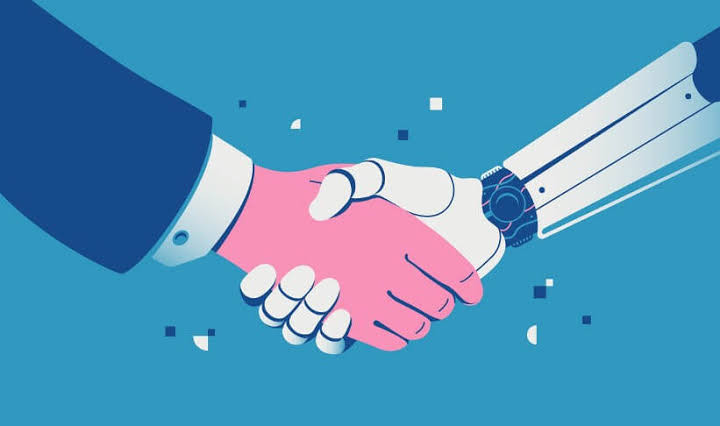Artificial Intelligence (AI) continues to shape the future of work with remarkable speed. As of 2025, the global job market is undergoing rapid transformation driven by intelligent systems that automate tasks, enhance productivity, and redefine the skills employers seek. While AI brings about promising efficiencies and new opportunities, it also raises concerns about job displacement, workforce inequality, and the urgency of reskilling.
The evolution of AI is not simply altering job descriptions—it is creating new dynamics across industries, pushing businesses, employees, and governments to adapt in real time. Understanding how AI affects the job market is crucial for preparing both current and future generations of workers.
Automating Routine and Repetitive Tasks
One of the most immediate impacts of AI is the automation of repetitive and predictable tasks. In industries like manufacturing, logistics, data entry, and customer service, AI-driven machines and algorithms have taken over many functions that once required human effort.
For example:
- Chatbots are now handling customer queries around the clock with minimal human intervention.
- Robotic Process Automation (RPA) is used in banks and insurance companies to process transactions and manage records.
- Warehouse robots sort, pack, and transport goods more efficiently than human workers.
This shift allows companies to cut operational costs and speed up delivery times. However, it also means that low-skill workers whose jobs are susceptible to automation face increasing vulnerability unless they are retrained.
Creating New Categories of Jobs
While AI does eliminate certain roles, it simultaneously gives rise to entirely new job categories. These emerging professions often focus on the development, implementation, and ethical management of AI systems.
Some of the in-demand AI-related job roles include:
- Machine learning engineers
- AI researchers and data scientists
- Ethical AI compliance officers
- AI-assisted healthcare analysts
- Robotics maintenance technicians
These roles require advanced technical skills and critical thinking, shifting the job market toward specialization in digital and cognitive fields. The growth of these positions highlights the importance of continuous learning and investment in education tailored to future skills.
Changing the Skills Landscape
AI’s integration into the workplace has significantly changed what employers expect from employees. While technical proficiency is on the rise, soft skills are also gaining importance as uniquely human capabilities remain irreplaceable.
Valued skills in the AI-driven workforce now include:
- Critical thinking and problem-solving
- Emotional intelligence and adaptability
- Digital literacy and data interpretation
- Collaboration in human-AI teams
Employers are increasingly looking for professionals who can work alongside AI tools, interpret outputs, and make informed decisions. The ability to use AI to complement, rather than compete with, human strengths is becoming a core competency in every sector.
Disrupting Traditional Employment Models
AI is also disrupting how people engage with work. The gig economy, remote work, and freelance platforms have grown significantly, with AI-powered tools enabling more flexibility in job sourcing and task completion.
Examples of these disruptions include:
- Freelancers using AI for content generation, marketing, and design
- Digital platforms like Upwork or Fiverr integrating AI to match freelancers with suitable projects
- AI-driven scheduling tools optimizing work hours and productivity
This shift encourages autonomy and diverse income streams, but it also presents challenges in terms of job security, benefits, and long-term career development. The need for new employment policies that protect freelance and gig workers is growing stronger.
Impact on Specific Industries
The influence of AI on the job market is not uniform. Some industries are experiencing more significant shifts than others, depending on their reliance on data and automation.
Industries with high AI impact:
- Manufacturing – Robotics are replacing repetitive assembly-line jobs, but also creating demand for robotic maintenance and AI supervision roles.
- Healthcare – AI assists in diagnostics, drug development, and patient monitoring, supporting doctors rather than replacing them.
- Finance – Algorithmic trading and fraud detection systems are reshaping financial services, requiring more tech-savvy analysts and compliance officers.
- Transportation – Autonomous vehicles and route optimization software are transforming logistics, with reduced need for drivers but growing demand for tech support.
Industries with lower AI disruption may still experience secondary effects, such as changes in customer behavior or supply chains influenced by automation elsewhere.
Encouraging Reskilling and Lifelong Learning
One of the most pressing solutions to AI-related job displacement is reskilling. Governments, institutions, and businesses are realizing the urgency of investing in education and training programs to help workers transition to new roles.
Effective reskilling strategies include:
- Public-private partnerships to fund vocational training and digital literacy programs
- Corporate upskilling initiatives offering online courses and certifications to existing staff
- Bootcamps and community learning hubs teaching data analysis, programming, and AI fundamentals
Lifelong learning is now a necessity, not a luxury, as technology evolves faster than ever before. Workers who embrace continuous education are better positioned to stay relevant in the AI-powered job market.
Ethical and Social Implications
The widespread adoption of AI raises ethical questions related to employment equity, surveillance, and bias in hiring algorithms. Without proper safeguards, AI could deepen existing inequalities or reinforce discriminatory patterns.
Key concerns include:
- Bias in hiring software that may favor certain demographics over others
- Surveillance tools that monitor employee productivity, sometimes at the cost of privacy
- Job loss concentration in specific socioeconomic or geographic groups
Addressing these issues requires transparent governance, inclusive technology design, and regulations that prioritize human rights and workplace fairness. Stakeholders must ensure AI benefits are shared equitably across all sectors of society.
Shaping the Future of Work
As AI continues to evolve, the future of work will depend on how societies manage the transition. The shift is not only technological but cultural, demanding adaptability from institutions and individuals alike.
Essential components of a sustainable AI-work future include:
- Inclusive digital policies ensuring access to training and technology for all
- Cross-disciplinary education that combines technology, ethics, and humanities
- Stronger labor protections for flexible and non-traditional workers
- Collaborative frameworks that bring together governments, businesses, and educators
If managed thoughtfully, AI can lead to a more efficient, creative, and inclusive workforce. But the responsibility lies with every stakeholder to guide this transformation in a way that uplifts rather than displaces.
Conclusion
Artificial Intelligence is reshaping the job market in profound ways, from automating mundane tasks to creating high-skill opportunities. As of 2025, the most successful workers and organizations are those who view AI not as a threat, but as a tool for innovation and empowerment.
Navigating this change requires strategic planning, equitable policies, and a collective commitment to lifelong learning. In this AI-driven era, human adaptability, empathy, and ethical thinking will remain more valuable than ever.



